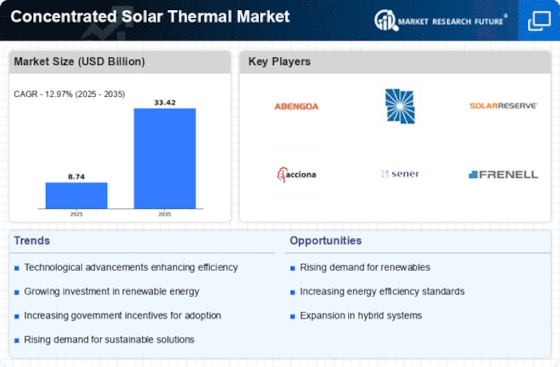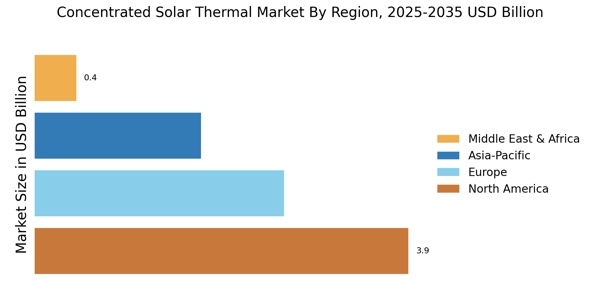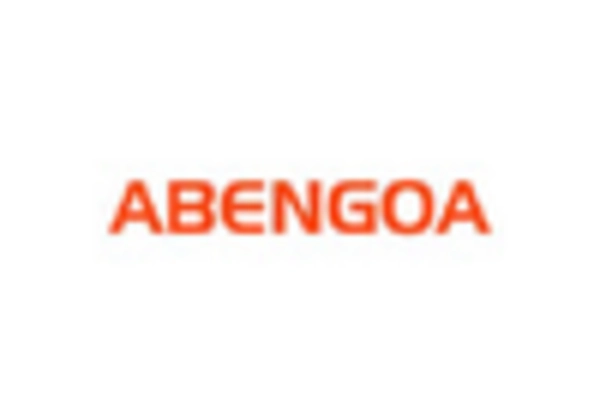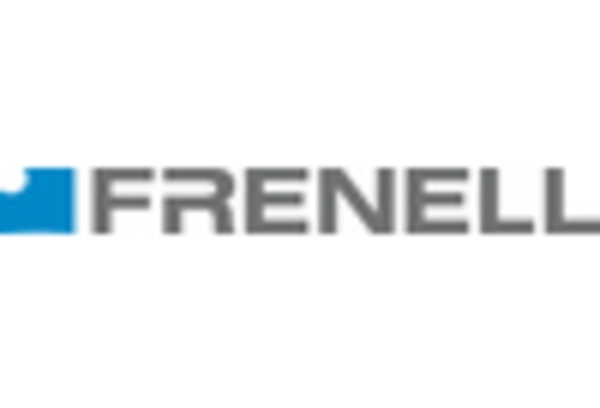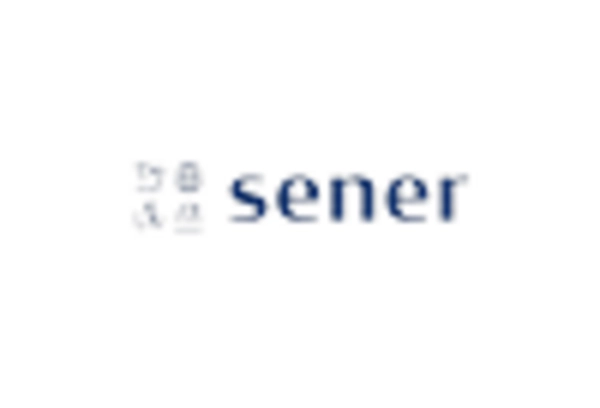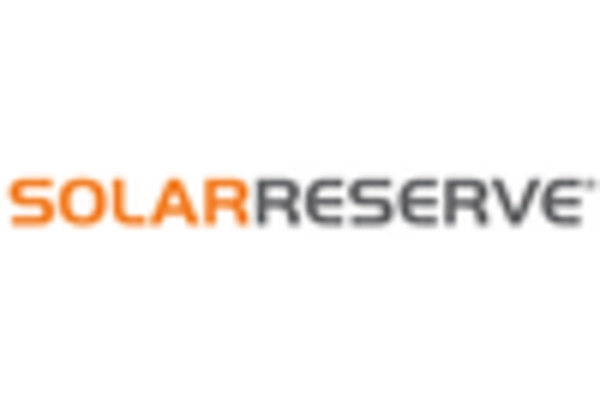Rising Energy Costs
The escalating costs of traditional energy sources are propelling interest in the Concentrated Solar Thermal Market. As fossil fuel prices fluctuate and often trend upward, consumers and businesses are increasingly seeking alternative energy solutions. In 2025, the cost of conventional energy is projected to rise by 10%, making solar thermal technologies more attractive. This economic pressure encourages investments in renewable energy systems, as they offer long-term savings and energy independence. The financial viability of concentrated solar thermal systems is further enhanced by decreasing installation costs, which have dropped by nearly 20% over the past few years. Consequently, the Concentrated Solar Thermal Market is likely to experience heightened demand as energy costs continue to rise.
Technological Innovations
Technological innovations are a driving force behind the evolution of the Concentrated Solar Thermal Market. Advances in materials, design, and efficiency have led to the development of more effective solar thermal systems. For example, the introduction of advanced heat transfer fluids and improved mirror technologies has enhanced energy capture and conversion rates. In 2025, the efficiency of concentrated solar thermal systems is expected to improve by approximately 15% compared to previous generations. This progress not only reduces the cost of energy production but also increases the competitiveness of solar thermal solutions against other energy sources. As technology continues to advance, the Concentrated Solar Thermal Market is poised for significant growth.
Growing Industrial Applications
The expansion of industrial applications for concentrated solar thermal systems is a notable driver for the Concentrated Solar Thermal Market. Industries such as manufacturing, food processing, and chemical production are increasingly recognizing the benefits of integrating solar thermal technologies into their operations. In 2025, it is anticipated that industrial applications will account for over 30% of the total demand for concentrated solar thermal systems. This trend is driven by the need for sustainable energy solutions that can reduce operational costs and carbon footprints. As industries seek to enhance their sustainability profiles, the adoption of concentrated solar thermal technologies is likely to accelerate, further solidifying the market's growth trajectory.
Government Incentives and Policies
Government incentives and supportive policies are instrumental in shaping the Concentrated Solar Thermal Market. Various countries have implemented favorable regulations and financial incentives to promote the adoption of solar thermal technologies. For instance, tax credits, grants, and feed-in tariffs are designed to lower the initial investment barriers for consumers and businesses. In 2025, it is estimated that countries with strong policy frameworks could see a 20% increase in the deployment of concentrated solar thermal systems. These initiatives not only stimulate market growth but also encourage innovation within the industry. As governments continue to prioritize renewable energy, the Concentrated Solar Thermal Market is likely to benefit from sustained policy support.
Increasing Demand for Renewable Energy
The rising demand for renewable energy sources is a pivotal driver for the Concentrated Solar Thermal Market. As nations strive to meet ambitious climate goals, the transition from fossil fuels to renewable energy is accelerating. In 2025, the share of renewable energy in the global energy mix is projected to reach approximately 30%, with solar thermal technologies playing a crucial role. This shift is not merely a trend; it reflects a fundamental change in energy consumption patterns. Policymakers are increasingly incentivizing the adoption of renewable technologies, which enhances the market potential for concentrated solar thermal systems. The growing awareness of environmental issues among consumers further propels this demand, indicating a robust future for the Concentrated Solar Thermal Market.


